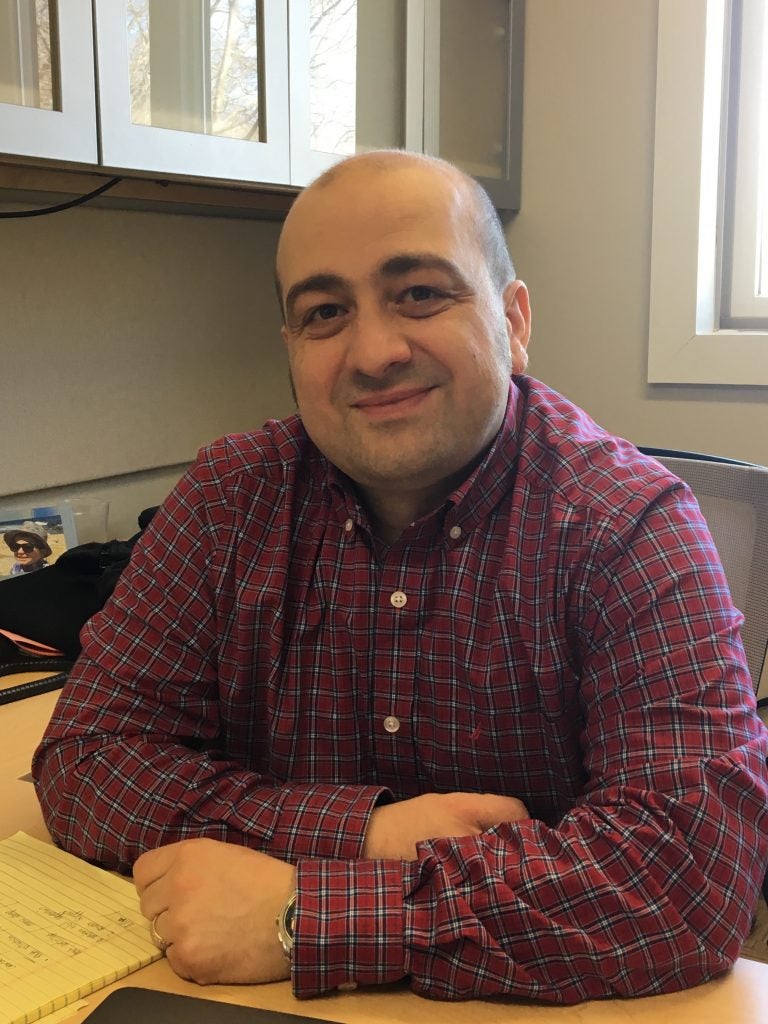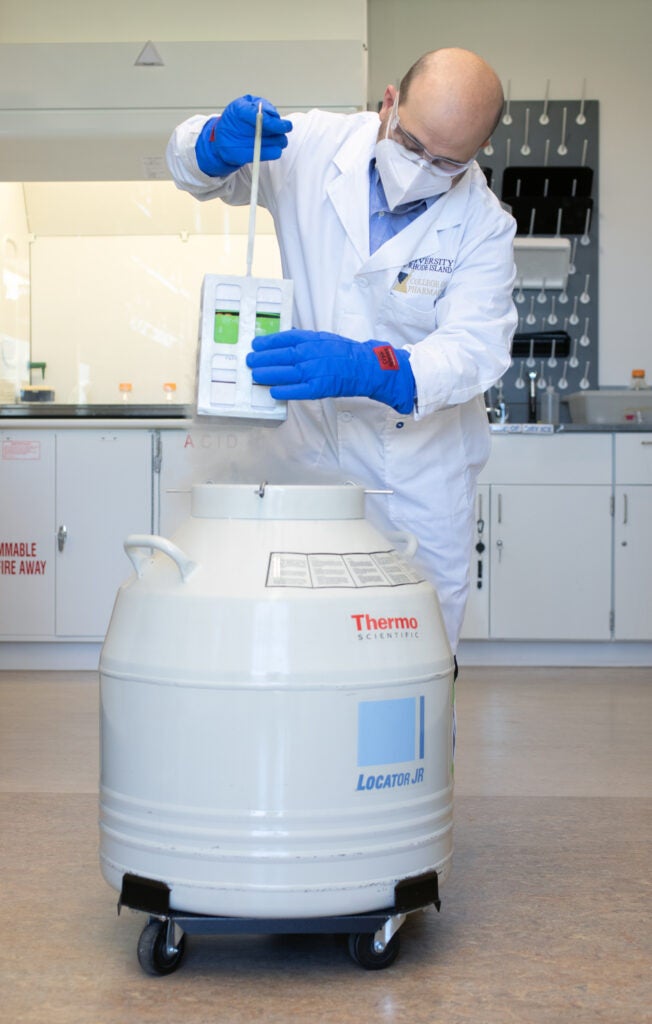Giuseppe Coppotelli, Ph.D. investigates how protein homeostasis deregulation and mitochondrial dysfunction in the aging brain could contribute to chronic inflammation and dementias such as Alzheimer’s disease.

What drew you to this area of research?
Growing up, I was always curious about living organisms. How do plants grow? How do they know to turn their leaves to the sun? I studied biology at Sapienza University in Rome, and I became more interesed in human disease, earning my Ph.D. in molecular endocrinology.
Then, when I met my wife, she was pursing a Ph.D. in Sweden, so I started looking for a position there. I found a lab that was studying viral proteins and how they hijack the human cellular system. I became really interested in protein homeostasis and how cells get rid of proteins that aren’t needed anymore to make space for new proteins. As we age, this system starts to fail. I wondered, why does that happen? I became more and more intrigued, and eventually started to move into aging research. So, it was a long journey before I landed on aging.
Now, my question is why do we age? What drives this change, and is there something we can do to slow down or prevent this from happening?

What fascinates you most about the study of aging?
We have found that mitochondria not only stop being effective as we age, but also they start to produce toxic compounds that can damage the cells. What is fascinating to me is that this process is malleable. With diet and exercise, we can do something to prevent mitochondrial dysfunction and age in a healthy way.
What do you find most challenging about this field?
The field of aging has grown dramatically in the last 15 years. Researchers used to ask, “Why study aging? There is nothing you can do about it.” Now the field is filled with people talking about aging, but it can be difficult to distinguish who is seriously trying to understand the aging process versus who wants to develop a supplement that they can sell. It can be frustrating, but it is still an exciting field. The majority of human diseases and disorders are linked to aging, so if we can understand why aging happens, maybe in one shot we can find answers to a lot of these other questions.
Did you always want to be a scientist?
Since I was young, whenever anyone asked me what I wanted to do when I grew up, my answer was, “Scientist.” I didn’t know then what type of scientist I wanted to be, but I always wanted to do what I am doing. I think studying and understanding, learning something new, is what makes it exciting to be human.
What is something you have learned from a mentor?
Be perseverant to get what you want. Never accept “no.” If you have a goal, find a way to reach your goal. In theory, everything is easy and should work. In reality, it’s different. Some students get frustrated after trying something one or two times, but it takes discipline and a strong will to want to understand why something didn’t work, to adjust the conditions, and to try again for the result you want. You may hit a wall and have to find a different strategy or a different path, but learn from problems and setbacks. Persevere to reach your goal.
“Be perseverant to get what you want. Never accept ‘no.’ If you have a goal, find a way to reach your goal.”
Giuseppe Coppotelli, Ph.D. is a research assistant professor of biomedical and pharmaceutical sciences, and staff scientist in the Ross lab, where he investigates molecular mechanisms of the aging process.
